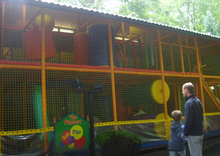
An amusement park is a park that features various attractions, such as rides and games, as well as other events for entertainment purposes. A theme park is a type of amusement park that bases its structures and attractions around a central theme, often featuring multiple areas with different themes. Unlike temporary and mobile funfairs and carnivals, amusement parks are stationary and built for long-lasting operation. They are more elaborate than city parks and playgrounds, usually providing attractions that cater to a variety of age groups. While amusement parks often contain themed areas, theme parks place a heavier focus with more intricately-designed themes that revolve around a particular subject or group of subjects.

Chuck E. Cheese is a chain of American restaurants founded in 1977 by Atari's co-founder Nolan Bushnell. Headquartered in Irving, Texas, each location features arcade games, amusement rides and musical shows in addition to serving pizza and other food items; former mainstays included ball pits, crawl tubes, and animatronic shows. The chain's name is taken from its main character and mascot, Chuck E. Cheese. The first location opened as Chuck E. Cheese's Pizza Time Theatre in San Jose, California. It was the first family restaurant to integrate food with arcade games and animated entertainment, thus being one of the pioneers for the "family entertainment center" concept.

DisneyQuest was a chain of indoor interactive theme parks in the United States operated by the Disney Regional Entertainment subsidiary of Walt Disney Parks and Resorts.

A theme restaurant is a type of restaurant that uses theming to attract diners by creating a memorable experience. Theme restaurants have a unifying or dominant subject or concept, and utilize architecture, decor, special effects, and other techniques, often to create exotic environments that are not normally associated with dining because they are inaccessible, no longer exist, are fictional or supernatural, or taboo. The theme may be further extended through the naming and choices of food, though food is usually secondary to entertaining guests.
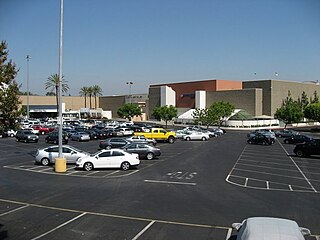
Puente Hills Mall, located in City of Industry, California, United States, is a major regional shopping center in the San Gabriel Valley region of Los Angeles County. It is most notable for serving as the filming site for the Twin Pines/Lone Pine Mall for the 1985 movie Back to the Future starring Michael J. Fox and Christopher Lloyd. Anchor tenants are Round 1 Entertainment, and Ross Dress For Less.

Bullwinkle's Entertainment, previously known as Family Fun Centers & Bullwinkle's Restaurant and formerly Bullwinkle's Family Food n' Fun is a chain of family entertainment centers. Locations feature a sit-down restaurant, complemented by arcade games, go-karts, bumper boats, mini golf, laser tag, a ropes course, a zip line, and small rides for children. Games and activities are generally themed around the company's namesake, The Rocky and Bullwinkle Show.
Sega World, sometimes stylized as SegaWorld, is a formerly international chain of amusement arcades and entertainment centers created by Sega.

Mr. Gatti's Pizza is a Southern and Southeastern United States pizza-buffet chain. The corporate offices are in Fort Worth, Texas.
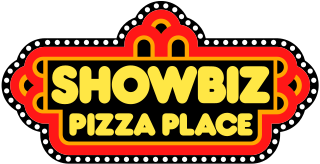
ShowBiz Pizza Place, often shortened to ShowBiz Pizza or ShowBiz, was an American family entertainment center and restaurant pizza chain founded in 1980 by Robert L. Brock and Creative Engineering (CEI). It emerged after a separation between Brock and owners of the Chuck E. Cheese franchise, Pizza Time Theatre. ShowBiz Pizza restaurants entertained guests through a large selection of arcade games, coin-operated rides, and animatronic stage shows.

Charles Entertainment Cheese, or Chuck E. Cheese for short, is the mascot of CEC Entertainment Concepts L.P.'s Chuck E. Cheese chain of family entertainment centers (FECs) From 1977 to 1992 he was an anthropomorphic rat, changing to a mouse in 1993. In 2012, he was rebranded into a Rockstar in response to an ongoing decrease in sales during 2011.

The Amazing Pizza Machine is a family entertainment center located in the Millard area of Omaha, Nebraska. According to Play Meter magazine, the Amazing Pizza Machine has an "array of games, rides, and attractions all under one roof are unparalleled in the region." The facility has received several industry awards, including being named a "Top Family Entertainment Center of the World" by the International Association of Amusement Parks and Attractions in 2007. The Amazing Pizza Machine is owned in part by the co-owners of Valentino's Pizza.
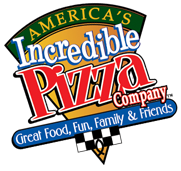
America's Incredible Pizza Company (AIPC) is an American restaurant chain based in Springfield, Missouri. The restaurants are pizza buffets and entertainment centers. The first restaurant opened in Springfield in 2002. The company has 1,200 employees, and a revenue of $64.1 million.
Pizza Showtime was a family restaurant and entertainment centre operating in Perth, Western Australia from 1980 to 1984. Similar to the American Chuck E. Cheese chain it was a sit down pizza restaurant complemented by arcade games, and animatronic characters.
Funtasia is a chain of entertainment facilities in Ireland. Funtasia operates a water park in Drogheda and used to operated an FEC in Bettystown. On March 1, 2014, It was created.

Fun Spot America Theme Parks is a group of amusement parks. Since 1979, the group has owned and operated a number of small amusement parks over the years and currently has three locations in Orlando, Florida, Kissimmee, Florida, and Fayetteville, Georgia.

Round One Corporation, stylized as ROUND1, is a Japan-based amusement store chain. In Japan, the amusement centers offer bowling alleys, arcade games, karaoke, and billiards. Select larger locations also include SpoCha, which is an abbreviation for “Sports Challenge”, which offers a variety of items and indoor activities such as batting cages, basketball, volleyball, tennis, futsal, driving range, etc. Round One Entertainment Inc. is an American subsidiary of Round One Corporation. The amusement centers in the U.S. offer a variety of bowling, karaoke, video game arcade cabinets and redemption games, billiards, darts, and ping pong while serving a variety of food and beverages.
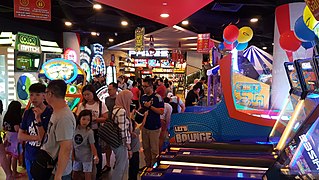
Out-of-home entertainment is a term coined by the amusement industry to collectively refer to experiences at regional attractions like theme parks and waterparks with their thrill rides and slides, and smaller community-based entertainment venues such as family entertainment and cultural venues.

The McDonald's PlayPlace is an amusement commercial playground attached to a McDonald's restaurant. It features play areas such as tube mazes, slides, ball pits, and video games, as well as tables for eating. First established in 1971 at the Chula Vista, California location, they are usually rainbow colored and themed after McDonaldland.

